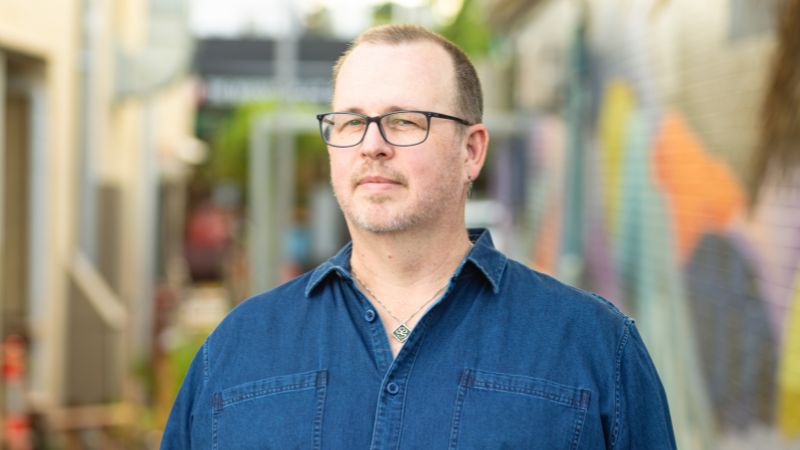OPINION
A furor has erupted over a podcast conversation from the Better Together conference. It has led for calls for the annual LGBTIQA+ rights conference that begins this Friday to be boycotted.
The OUTinPerth team are scheduled to cover the conference’s many sessions, and will also be speaking at the event about the future of LGBTIQA+ news in Australia, as well as hosting a discussion about Australia’s goals to reach virtual elimination of new cases of HIV by 2030.
Several prominent organisations and community members have opted out of the event, some groups have permanently severed ties with event organisers The Equality Project, other have called for their staff to be sent to training courses and amends to be made. I respect those decisions, and understand the frustration and hurt that’s been caused.

We will be attending. We will be reporting on as many of the sessions as we can cover, and we look forward to the friendships to be made, the conversations to be had, the debates to be tackled and listening to as many points of view as we can.
We won’t agree with all of them, we know not everyone will agree with us, and we always hope to call out and challenge preposterous and ill-informed statements.
The podcast that sparked the concerns has now been taken down, the entire series is gone, however organisers have yet to make any official comment on this beyond their initial apology.
The conversation between Matt Beard from international organisation All Out and Jason Tuazon-McCheyne the Executive Director of The Equality Project essentially had two parts.
In the first part Matt Beard speaks about the importance of ‘calling people in’ rather than ‘calling people out’ is a position we often hear from people whose job is professional advocacy.
It’s a view regularly voiced by people who are doing the advocacy work that involves face to face meetings with politicians, negotiations, and lobbying. Often the activist who marches down the street with a placard, the people who protest, those who post stickers on office doors are told their efforts are disruptive and unhelpful.
Nothing new in that viewpoint, its been said by almost every professional lobbyist I’ve ever encountered. I think we always need both, both approaches are valid, and while they don’t always work in synchronicity – but no major change has ever come without lobbying and protest working together hand-in-hand.
I’ve been struggling to find the right word to describe the shift to the content of the second half of the podcast. Amusingly… bizarrely… unfortunately… regrettably… insultingly… OMG WTF…
Matt Beard then goes on to demonstrate why sometime you do need to CALL PEOPLE OUT with his comments about transgender issues. He’s like a echo of anti-trans talking points, as if somebody has very effectively lobbied him.
His praise for the Cass Review ignores the large amount of criticism about its process and findings, his concern that we live in a world where gender non-confirming youth are channeled into medical care ignores reality, and his take on participation in sport is simplistic.
It is unfortunate that Jason Tuazon-McCheyne didn’t challenge him on these viewpoints in the podcast. It’s frustrating that listening back in the editing process nobody said “wait a minute, this is some super transphobic ill informed commentary”. It’s especially disappointing given The Equality Project and their Better Together Conference has been a space in the past where diverse voices including those of people who are transgender have been given space.
OUTinPerth’s journey with the The Equality Project and Better Together has been over many years. Like many LGBTIQA+ rights advocates and community organisers we’ve completed training with the GLAAD Media Institute that was facilitated by the Equality Project.
I attended the 2023 Better Together Conference and found it informative and valuable. Which is why we’ve made a significant investment in attending this year’s event.
I’m looking forward to attending Better Together. It’s a space where hundreds of valuable and informative conversations take place, we should not let the comments of one Berlin based advocate, and a weak response from organisers, take that away from all our LGBTIQA+ communities.
I was hoping that Matt Beard would still be attending, I had hoped he would still make the trip to Australia. I hoped for him to hear from lots of people about how his comments were received, I hoped he learned of Australian perspective – where despite a huge lobby campaign, media onslaught, and constant attacks – acceptance of people who are transgender is progressing more than reversing. However looking at the latest version of the program it seems his name is missing.
I want to hear Joe Ball, Jeremy Oliver and Simon Ruth talk about a collaborative response to hate crimes, I’m looking forward to Anja Ravine, Frances Mulcahy and James Allen speak about medical research, I can’t wait to learn more about refugee challenges, successful intergenerational programs and I look forward to Amelia Arnold’s session on cis allies in trans solidarity, plus many more sessions.
Most of all we look forward to sharing as many of those conversions with everyone who cannot make the trip to Adelaide.
As part of our decision making process we spoke to many close friends and colleagues who are part of the transgender and non-binary communities. They’re feedback was diverse, but highly valued and appreciated.
In making our decision to attend we returned to our organisational mission statement, which outlines our promise to highlight positive role models showcasing their achievements, lessons and experiences, and to also question our community’s practices, standards and behaviour.
Our work has often involved speaking to people we disagree with, who spout offensive statements, and hold viewpoints we thoroughly disagree with, and that key principle applies to both outside of our LGBTIQA+ communities and to those within.





